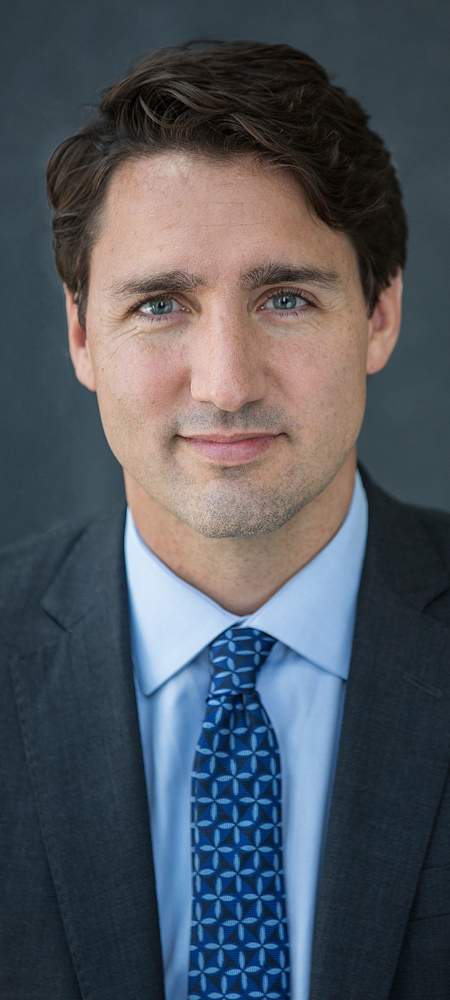Chapter
No
Justin Trudeau
The handsome and charismatic son of Canada’s most famous prime minister, Pierre Elliott Trudeau (1919-2000), Justin was long considered destined to follow in his father’s footsteps, yet the younger Trudeau came to politics relatively late in life. His 20s and 30s were spent pursuing a variety of apolitical passions, including teaching and charity work, but he showed little interest in national affairs. Eventually, however, he was elected as a Liberal member of parliament in 2008 at age 36, the same year the Conservative government of Stephen Harper (b. 1959) was re-elected. In 2011 Harper won a third term and the Liberals were nearly wiped out, causing insiders to believe the party needed a dramatic new leader to revive its flagging fortunes. In 2013 Trudeau was overwhelmingly voted in as party boss, and in the 2015 general election he lead the party to the most dramatic comeback in Canadian history, crushing Harper and boosting the Liberals’ seat count from 34 to 184.
Like his father, the younger Trudeau was a strong progressive, and proved particularly passionate about issues relating to social justice and equality, including feminism, racial equality, reconciliation with Canada’s native peoples, the fight against climate change, and LGBT rights. Following his inauguration, he became a major global celebrity and progressive hero, often described as a rare champion of liberal values at a time when many countries were embracing the politics of the populist right. His first term was defined by a number of center-left initiatives including hiking taxes on the wealthy, legalizing marijuana and doctor-assisted suicide, and implementing a nation-wide carbon tax to reduce pollution. In the realm of foreign policy, his administration was mostly consumed with managing Canada’s relationship with US President Donald Trump (b. 1946). In 2018 the two leaders negotiated a new trade pact, the United States-Mexico-Canada Agreement (USMCA), though in Trump’s second term (2025- ) relations soured as Trump began to threaten tariffing the Canadian economy.
The final year of Trudeau’s first term was largely dominated by scandal, including allegations he had improperly tried to prevent the powerful Quebec construction company SNC-Lavalin from facing corruption charges, and a bizarre revelation he had repeatedly worn “blackface” at costume parties as a young man. He was re-elected in 2019 and 2021, but much of his earlier popularity had clearly faded — both times he only won a minority government and the smallest share of the popular vote of any prime minister in Canadian history. The COVID-19 pandemic dominated much of his second and third terms, which he was praised for managing well, but the ensuing economic fallout, especially high inflation, resulted in his popularity dwindling even further. Citing a desire to avoid fighting “internal battles” with a growing chorus of critics in his party, on January 6, 2025 he announced his intention to resign and was soon after replaced by his party with Mark Carney (b.1965).
